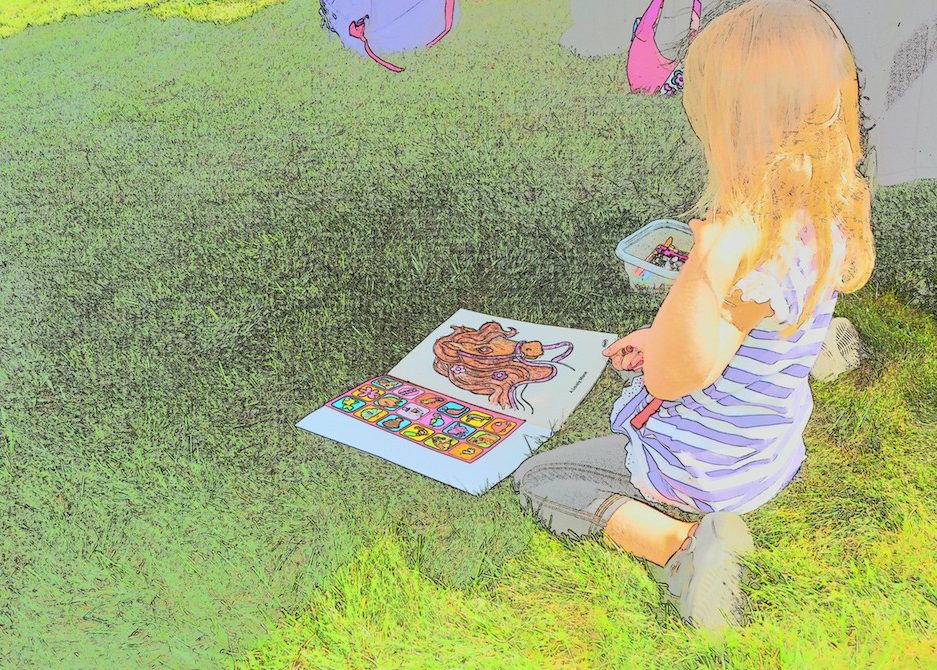
Children of addiction: Love, abuse, resentment and recovery
by Melissa Cassiano, William Paterson University, NJ student writer
About 28 million Americans are children of substance abusers, 11 million of whom are under the age of 18, according to the National Association for Children of Alcoholics (NACA) Children of Addicted Parents Fact Sheet. The fate of an addict’s children, is directly intertwined to that of the parent. Children of addicts, specifically those addicted to drugs and alcohol, are not destined to become addicts themselves, nor do they always grow to resent their sick parent.
How addiction affects families

The possibility of abuse is a concern for children of addicts. According to the NACA, an overwhelming number of child welfare professionals claim substance abuse is the number one cause of the dramatic rise in child maltreatment, and that it is a significant factor in instances of child maltreatment. They also report that 32 percent of children of addicts are sexually abused.
One study illustrated by the NACA found that 79 percent of runaways reported being children of addicts. Of those children, 53 percent of them experienced abuse in their home. About 1100 infants are abandoned by their mother in the hospital due to addiction. About half of these infants have fetal alcohol syndrome or another drug related illness.
Additionally, biological children of a substance abusers are four times more likely to become an addict themselves, according to the NACA. Adopted children are twice as likely to abuse a substance. These children have a higher risks of being violent, lacking empathy for others and developing mental and behavioral issues such as depression, anxiety and ADHD. They are also less likely to succeed in school and in relationships.
Charla Dury, 43 from Morrison, CO said her mother married her stepfather when she was only three years old and that he was the only father figure she ever knew. Although she grew up with constant fighting, her most vivid memory of her stepfather being an alcoholic was when his job placed him in detox when she was nine years old.
“His job was tired of him coming to work drunk,” she said. “So they paid for him to detox.”
She remembers going to see him with her mom and brother during the two weeks he was detoxing in the hospital. She did not feel sad that he was struggling because he wasn’t nice to her mother.
“He was never physically abusive towards my us or my mom, but he was emotionally and mentally abusive,” Charla said.
Twenty-four year old writer and Rhode Island social worker, Carlie Currier, became aware of her father’s addiction in fifth grade after her grandmother—his mother—passed away.
“He used alcohol as self medication for his depression,” Carlie said. “When he started drinking heavily, my mom adopted the ‘if you can’t beat him, join him’ mentality, which led to many explosive fights and painful memories for me.”
Children of addicts can help with recovery
Many parents are high functioning addicts and do not abuse their children. However, the main concern is the child being neglected and becoming the parent’s caregiver. On the other hand, sometimes a child can be a huge help for their addicted parent just by being there.
The National Treatment Agency for Substance Abuse’s (NTA) 2012 report of Families of Children of Drug Misusing Parents, observed several groups of addicts, half of whom live with children: those whose own children live in their home, parents who live with other people’s children (ie: a spouse’s child, or younger siblings), and those who had children who did not live with them. Half of the adults studied were did not have or live with children.
About 36 percent of these individuals completed the rehabilitation process with the children in the home. NTA found that success in recovery is more likely for parents whose children were not removed from the home. The children became a motivational tool, and parents had a higher willingness to recover and recovered quicker.
On the other hand, adults with no children, or who live with children who were not theirs, did not have the same success rate for recovery. The childless adults were more likely to go back to hard drugs such as crack and heroin. Those who live with children that were not their own also had a low success rate. Many of these children were removed from the home either by foster care, or the parent.
Growing up as a child of addiction
Coping with an addicted parent is a lifelong process.
Nestor Torres Jr, age 30, is the son of a now-deceased alcoholic.
Nestor first knew that his father was an alcoholic when he was eight. He said his father’s absence when he

Photo by JoAnna Schillaci
was four was the most difficult part. His father reappeared several times since then, when Nestor was eight, 12, 17, and 23.
“I could not see him whenever I wanted to,” Nestor said. “And I could not have the typical father son relationship that children of non-addicts have.”
He said this left him feeling both frustrated and optimistic.
“On one hand, I was hopeful that he would get better,” Nestor said. “And on another hand, I was frustrated with the situation.”
Despite the fighting and trauma, Charla had positive memories of her stepfather, expressing that he was observant, witty and intelligent.
After detox, he started drinking near beer, a drink that tastes like beer but has little to no alcohol. However, it wasn’t long until her stepfather went back to drinking on the sly. He began with Listerine and Nyquil, hiding the bottles in his desk drawer so his family would not find them. However, his family knew he was drinking again.
Understanding that alcoholism is a disease helped Carlie recognize that her parents are not bad people—they just have bad addictions.
“In my early childhood, I had fond memories of [my father] helping to raise me,” Carlie said. “It was crazy to think he’d been such a prominent figure in my life, and then just became a total stranger.”
Despite his struggles, Nestor said that he never hated or resented his father. He came to realize that being an alcoholic was an illness at the age of 19.
“It was not that he did not want to be there, is that he couldn’t be there,” Nestor explained.
Charla, on the other hand, still holds anger towards her step-father.
“That’s all I have left for him, a smoldering anger,” said Charla. “Anger because he passed down the gene of alcoholism to my brother.”
Closure?
On August 31, 2012, Nestor received the tragic news that his father had passed away. He knew this news was coming because his father had been sick. Nestor spoke at his father’s funeral with a sense of peace and closure.
“I understood what he was going through at an early age,” Torres explained. “His absence helped with that.”
Charla’s stepfather passed away during the Christmas holidays in 2002. He died of a heart attack alone in his apartment, leaving his family with a mixed bag of emotions and a lack of closure.
“I never got the chance to tell him how shitty it was and how much he put us through,” Charla said. “My brother lost his dad and my husband liked him, so I feel bad that he lost an in-law. My older kids got to know him, so I feel bad for their loss. It is just a whole bunch of things.”
Carlie’s parents divorced when she was a freshman in high school. Her mother constantly feared he would return to hurt her, and the only contact Carlie, who is now 24, has had with him since then was drunken voicemails, when the police would respond to him showing up at their house, and through small-town gossip. The scuttlebutt has told her that he is still alive—and still drinking—and so Carlie has chosen to avoid the abuse and remain estranged from him.
“I admit that I do still hold some resentments because of how their actions have affected my adult relationships,” she said.



 children of addicts must make their own way photo by JoAnna Schillaci
children of addicts must make their own way photo by JoAnna Schillaci  children of addicts must make their own way photo by JoAnna Schillaci
children of addicts must make their own way photo by JoAnna Schillaci